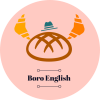超基礎版 15句日常應用對話句型
簡介 Introduction
在翻譯句子的時候,你會一直不小心使用中文腦嗎?人山人海直接翻譯成「People mountain people sea」嗎?哎呦!這樣可是不行的啊~人山人海的英文可以這樣說「It’s like packed like sardines 就像沙丁魚一樣包裝」!就讓我們透過以下的內容來訓練一下自己,如果要表達這些超級日常的句子,是否可以很輕鬆的應答吧!Let’s go~
教學文章 Article
1.「如果…要告訴我」應該怎麼說?
Let me know if…
Let me know if…
Let me know if…
Let me know if you want the job.
如果你要這個工作,要告訴我。
Let me know if you have any problems.
如果你有問題,要讓我知道。
A: We are going to go camping tomorrow morning.
A: Let me know if you want to go with us.
B: All right, I will let you know.
A: 明天早上我們要去露營。
A: 如果你想和我們一起去,要跟我說。
B: 好的,我會告訴知道。
2.「你會介意…嗎?」應該怎麼說?
Do you mind if I…?
Do you mind if I…?
Do you mind if I…?
Do you mind if I borrow that pen?
你會介意我借那支筆嗎?
Do you mind if I bring a friend?
你會介意我朋友來嗎?
A: Do you mind if I come by at five instead of six?
B: That’s fine. No problem.
A: 介意我五點過來而不是六點嗎?
B: 沒關係。沒問題。
3.「你聽說…沒有?」應該怎麼說?
Did you hear about…?
Did you hear about…?
Did you hear about…?
Did you hear about that basketball game last night?
你聽說昨天那場籃球比賽了沒有?
Did you hear about your sister’s boyfriend?
你聽說妳姐姐的男朋友沒有?
A: Did you hear about the meeting next Tuesday?
B: No, I haven’t heard anything. Did you?
A: Well, Martin told me that the boss will *chair the meeting *in person.
B: No way…
A: 你聽說下週二的會議了嗎?
B: 不,我什麼都沒聽到。 你呢?
A: 哪,馬丁告訴我,老闆將親自主持會議。
B: 可以不要嗎…
*chair (v.) [tʃer] 主持(會議等)|in person 親自、本人
4.「我不是故意…」應該怎麼說?
I didn’t mean to…
I didn’t mean to…
I didn’t mean to…
I didn’t mean to offend you.
我不是故意要冒犯你。
I didn’t mean to get here so late.
我不是故意要這麼晚到這裡。
A: I can’t believe you said that my puppy is ugly.
B: I didn’t mean to offend you.
A: You shouldn’t say things like that.
A: 我簡直不敢相信你說我的小狗很醜。
B: 我不是故意要冒犯你的。
A: 你不應該這樣說。
5.「我在想…」應該怎麼說?
I was wondering if…
I was wondering if…
I was wondering if…
I was wondering if you could help me fix my computer.
我在想你是否可以幫我修電腦。
I was wondering if your parents would like to go with us.
我在想你爸媽會不會想跟我們出去玩。
A: Jimmy, are you doing anything right now?
B: What’s going on?
A: I was wondering if I might talk to you for a moment.
B: It’s okay.
A: 吉米,你現在手邊有事要做嗎?
B: 怎麼了嗎?
A: 我想知道是否可以和你聊一下天。
B: 沒問題。
6.「你們有…嗎」應該怎麼說?
Do you have…available?
Do you have…available?
Do you have…available?
Do you have any ticket available for Jenny’s concert?
你們有珍妮演唱會的門票嗎?
Do you have any medium-sized T-shirt available?
你們有中號的T卹嗎?
A: Welcome. May I help you?
B: Do you have any tables available by the windows?
A: How many people, please?
B: Four.
A: Well, we do have one table. This way, please.
A: 歡迎光臨。有什麼能為您服務?
B: 你們有任何靠窗的座位嗎?
A: 請問您們有幾位呢?
B: 四位。
A: 好的,我們還有一個空桌。這邊請。
7.「我在考慮…」應該怎麼說?
I’m thinking about…
I’m thinking about…
I’m thinking about…
*請特別注意,這個句子後面要加上「動名詞V-ing」
I’m thinking about buying a new car.
我在考慮要買一台新車。
I’m thinking about becoming a vegetarian.
我在考慮要成為一名素食者。
A: What are you doing this winter?
B: I’m thinking about going on a vacation.
A: Wow! That’s great! Where to?
B: Maybe to Japan.
A: 今天冬天你要幹嘛?
B: 我在考慮要去度假。
A: 哇!超棒的!你要去哪裡?
B: 也許去日本吧?
8.「有一點…」應該怎麼說?
It is/was kind of…
It is/was kind of…
It is/was kind of…
It was kind of sad, really.
有一點難過,說真的。
It was kind of strange to see him again.
再次見到他有一點奇怪。
A: How was your trip to Taipei?
B: It was fun, but it was kind of fast actually.
A: 你去台北的旅行如何?
B: 很好玩呀,但是旅程實在是快了一點。
9.「輪到你…」應該怎麼說?
It’s your turn to…
It’s your turn to…
It’s your turn to…
It’s your turn to do the dishes.
輪到你洗碗了。
It’s your turn to do the laundry.
輪到你洗衣服了。
A: It’s your turn to clean the bathroom, Simon.
B: All right. Will help me?
A: I guess so.
A: 輪到你掃浴室了,西蒙。
B: 好的。你會幫我嗎?
A: 我想會哦。
10.「是某人該…的時候了」應該怎麼說?
It’s time for someone to…
It’s time for someone to…
It’s time for someone to…
或是
It’s time that…
It’s time that…
It’s time that…
It’s time for us to leave.
我們是時候該離開了。
It’s time for you kids to go brush your teeth.
你們這些孩子是時候該刷牙囉。
It’s time that we wake up.
我們是時候要起床了。
It’s time that Fiona took care of herself.
費歐那是時候要照顧自己了。
A: Can we play cards?
B: No, it’s time for me to go.
A: OK. Bye.
A: 我們可以打牌嗎?
B: 不行,我是時候要走了。
A: 好吧,再見。
11.「我已經習慣…」應該怎麼說?
I’m used to…
I’m used to…
I’m used to…
*be used to是常見的片語,意思是「對某件事已經習慣」,後面可加上名詞或動詞,若要接上動詞,請特別注意是+「動名詞V-ing」。
I’m used to this lifestyle.
我已經習慣這種生活模式。
I’m used to reading books before going to bed.
我已經習慣睡前讀書。
A: Do you like spicy food?
B: No, I’m used to plain food.
A: 你喜歡辛辣的食物嗎?
B: 不,我習慣清淡的食物。
12.「我會習慣於…」應該怎麼說?
I’ll get used to…
I’ll get used to…
I’ll get used to…
*這句話的意思是指雖然目前我還不習慣,但是我會(努力)習慣的。
Don’t worry, mom. I’ll get used to my new school.
媽,別擔心。我會習慣新學校的。
I’ll soon get used to the climate here.
我會趕快習慣這裡的氣候。
A: How is your new job, Bill?
B: It’s good, but my boss is a little bit unfriendly. I’ll get used to his attitude.
A: 比爾,你的新工作怎麼樣?
B: 很好,但是我的老闆有點不友善。 我會習慣他的態度。
13.「我們最好…」應該怎麼說?
We’d better…
We’d better…
We’d better…
*這裡的We’d指的是We had的縮寫,如果是We had better後面必須加上「原型動詞」。這句話帶有「建議、提醒、警告、勸告」的含義存在。
We’d better go for a doctor.
我們最好去看個醫生。
We’d better eat this chicken before it goes bad.
我們最好在這個雞肉壞掉之前吃完它。
A: I’m about to go to bed. Good night!
B: Wait! We’d better take the trash out before we forget.
A: OK. I’ll do it now.
A: 我要去睡覺了。晚安!
B: 等等!我們最好趁我們還記得的時候把垃圾拿出去丟。
A: 好啦。我現在就去做。
14.「我寧願…也不願…」應該怎麼說?
I’d rather…than…
I’d rather…than…
I’d rather…than…
*在這個句子中的I’d是指I would,有別於前一個句子中我們提到的had請大家特別注意。要如何區分是had還是would呢?其實非常簡單,只是判斷後面接的動詞是「原型動詞」還是「過去分詞」即可。Would是助動詞,因此後面要加上「原型動詞」,而had與「過去分詞」連用,做為完成式的型態。
補充說明:「I would rather + 某事 + than + 另外一件事」,可以用來表達個人喜好。
I’d rather have tea than coffee.
我寧願喝茶也不願喝咖啡。
I’d rather walk than take a bus.
我寧願走路也不願搭公車。
A: I’m hungry. Let’s cook something!
B: I’d rather go out to eat than cook dinner.
A: Alright, where do you want to go?
A: 我餓了。我們來煮點東西吧!
B: 我寧願出去吃飯也不願在家煮飯。
A: 好吧,你想去哪裡吃?
15.「去…要花多久…」應該怎麼說?
How long will it take to…?
How long will it take to…?
How long will it take to…?
How long will it take to get there by train?
坐火車去那裡要花多久的時間?
How long will it take to set up the projector?
安裝投影機需要多長的時間?
A: Eric, I’m sorry to tell you that I can’t finish the assignment by Thursday.
B: How long will it take to finish the assignment?
A: I think I need until next Monday.
A: 艾瑞克,很抱歉告訴你我不能在星期四之前完成作業。
B: 完成這個作業要多久的時間?
A: 我認為我需要到下禮拜一才能做得完。
教學影片 Video

